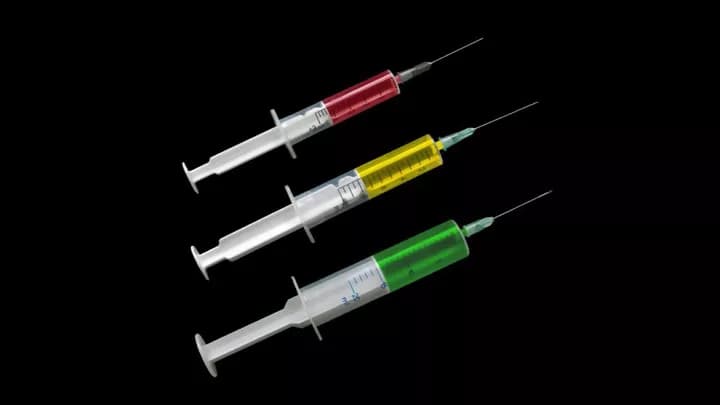
Short-term Increases In Inhaled Steroid Doses Do Not Prevent Asthma Flare-ups In Children
Researchers have found that temporarily increasing the dosage of inhaled steroids when asthma symptoms begin to worsen does not effectively prevent severe flare-ups, and may be associated with slowing a child's growth, challenging a common medical practice involving children with mild-to-moderate asthma.
The study, funded by the National Heart, Lung, and Blood Institute (NHLBI), part of the National Institutes of Health, will appear online on March 3 in the New England Journal of Medicine (NEJM) to coincide with its presentation at a meeting of the 2018 Joint Congress of the American Academy of Allergy, Asthma & Immunology (AAAAI) and the World Allergy Organization (WAO) in Orlando, Florida. It will appear in print on March 8th.
Asthma flare-ups in children are common and costly, and to prevent them, many health professionals recommend increasing the doses of inhaled steroids from low to high at early signs of symptoms, such as coughing, wheezing, and shortness of breath. Until now, researchers had not rigorously tested the safety and efficacy of this strategy in children with mild-to-moderate asthma.
"These findings suggest that a short-term increase to high-dose inhaled steroids should not be routinely included in asthma treatment plans for children with mild-moderate asthma who are regularly using low-dose inhaled corticosteroids," said study leader Daniel Jackson, M.D., associate professor of pediatrics at the University of Wisconsin School of Medicine and Public Health, Madison, and an expert on childhood asthma. "Low-dose inhaled steroids remain the cornerstone of daily treatment in affected children."
The research team studied 254 children 5 to 11 years of age with mild-to-moderate asthma for nearly a year. All the children were treated with low-dose inhaled corticosteroids (two puffs from an inhaler twice daily). At the earliest signs of asthma flare-up, which some children experienced multiple times throughout the year, the researchers continued giving low-dose inhaled steroids to half of the children and increased to high-dose inhaled steroids (five times the standard dose) in the other half, twice daily for seven days during each episode.
Though the children in the high-dose group had 14 percent more exposure to inhaled steroids than the low-dose group, they did not experience fewer severe flare-ups. The number of asthma symptoms, the length of time until the first severe flare-up, and the use of albuterol (a drug used as a rescue medication for asthma symptoms) were similar between the two groups.
Unexpectedly, the investigators found that the rate of growth of children in the short-term high-dose strategy group was about 0.23 centimeters per year less than the rate for children in the low-dose strategy group, even though the high-dose treatments were given only about two weeks per year on average. While the growth difference was small, the finding echoes previous studies showing that children who take inhaled corticosteroids for asthma may experience a small negative impact on their growth rate. More frequent or prolonged high-dose steroid use in children might increase this adverse effect, the researchers caution.
The study did not include children with asthma who do not take inhaled steroids regularly, nor did it include adults. "This study allows caregivers to make informed decisions about how to treat their young patients with asthma," said James Kiley, Ph.D., director of the NHLBI's Division of Lung Diseases. "Trials like this can be used in the development of treatment guidelines for children with asthma."
Related Articles
Test Your Knowledge
Asked by users
Related Centers
Related Specialties
Related Physicians
Related Procedures
Related Resources
Join DoveHubs
and connect with fellow professionals

0 Comments
Please log in to post a comment.